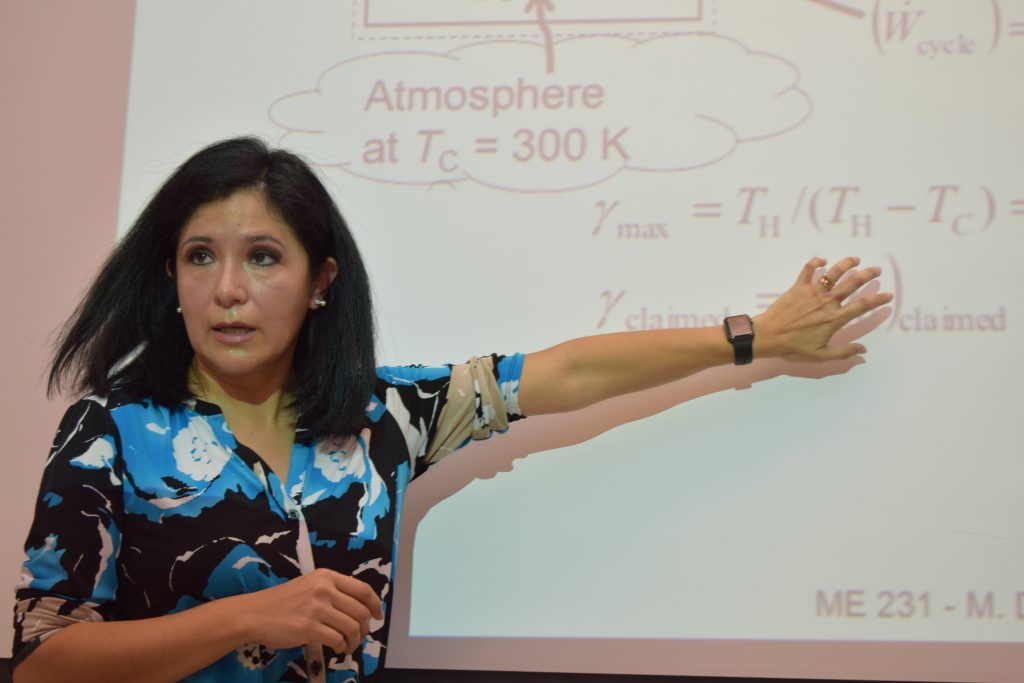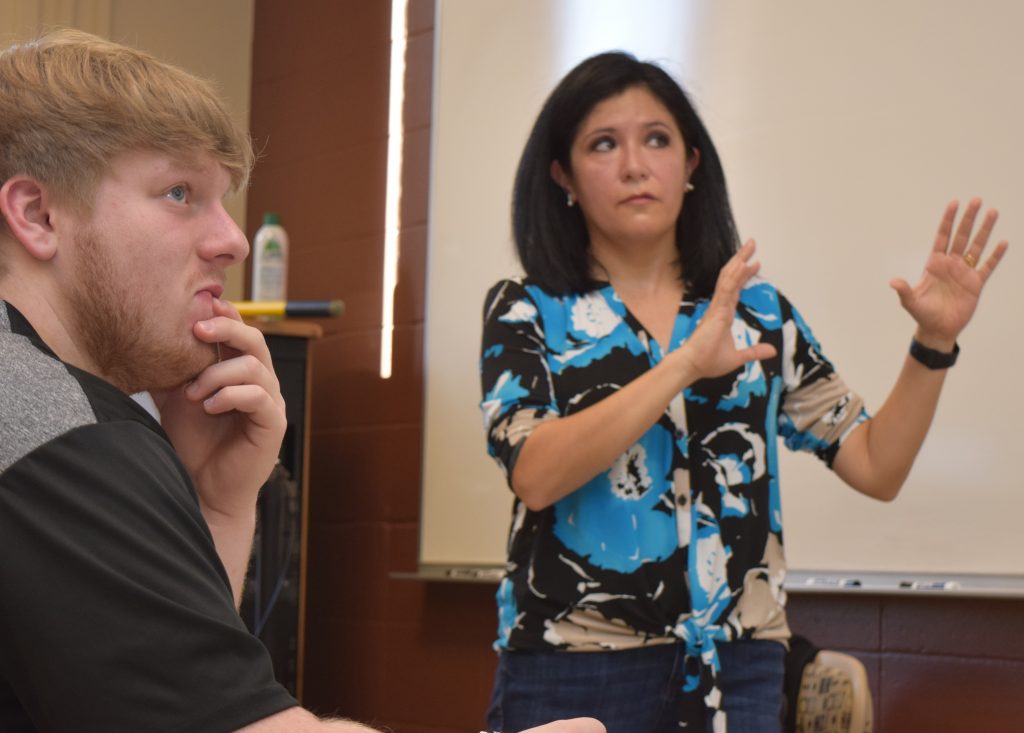
Iowa’s role as one of the nation’s agricultural leaders extends beyond helping to feed the rest of the country and other parts of world. Corn, for example, can be used for everything from pharmaceuticals that keep us from becoming ill to providing the fuel that helps to meet our energy needs. The latter is part of the research emphasis of mechanical engineering lecturer Mirka Deza. Deza comes from a family of engineers as her brother and one of her sisters have degrees in mechanical engineering while her other sister holds a PhD in civil and environmental engineering from Iowa State University. Deza’s formal experience in mechanical engineering began when she was an undergraduate at Pontificia Universidad Católica del Perú where she graduated with her BS in 1997. She then spent some time working in Peru first at a cement plant and then at an agricultural product company before enrolling in graduate school at ISU in 2002. She graduated with a MS in mechanical engineering and biorenewable resources and technology in 2006. During that time, she also served as a student engineer at the Industrial Assessment Center. She then went to Virginia Tech University where she graduated with her PhD in mechanical engineering in 2012 before returning to ISU as a postdoctoral research associate. Deza said the decision to come back to ISU was an easy one. “I initially returned as a research because ISU is one of the major universities doing research in biorenewable resources and energy,” she said. “They have a pool of excellent faculty researchers and state of the art high performance computers to perform computational fluid dynamics – or CFD – simulations.” In addition to research, Deza also teaches undergraduate courses focused on thermal-fluids and energy. At ISU she has taught Engineering Problems with Computer Applications (ENGR 160), Mechanical Engineering Problem Solving with Computer Applications (ME 160), Engineering Thermodynamics I (ME 231), and Introduction to Mechanical Engineering Design (ME 270). “Teaching is such a rewarding experience. I just got more involved with my classes, and turned out to be what I really wanted to do,” she said. “ISU offers a multicultural and diverse environment and makes it very competitive and ideal for getting an engineering degree.” She added that it is especially rewarding to see her students grow throughout their college experience and eventually gravitate toward certain subfields within mechanical engineering. She has had past students tell her how her classes have helped to prepare them for everything from internships to graduate school. Deza was part of four new faculty hires in ME for the 2016-17 academic year which included assistant professor Sarah Bentil, lecturer Paola Pittoni, and senior lecturer Michael Messman. Deza said that by having more women on the faculty – considering the field has historically been dominated by men – it can be beneficial in recruiting young female students. “Speaking from personal experience, since I started college and went through industry and academia, I believe having female faculty is beneficial to the field due to the inclusion of diverse ideas and contributions. It also gives female students who want to pursue a career in engineering a role model,” Deza said.

In addition to promoting gender-balance on its faculty, another emphasis by the department has been to show the versatility that a mechanical engineering degree can offer to students. Deza said that a degree in mechanical engineering can help students prepare for everything from careers in industry to academia in many different subfields. “We need to show students that ME can involve working in industry, doing research in a lab, programming in a high performance computing environment, or going to academia, which you can do in multiple fields such as medical, agricultural, aerospace, nuclear, and environmental,” said Deza. “I always tell my freshman students, ‘Whatever you decide to do, you must contribute to society. You will get all the technical knowledge you need to succeed, but ultimately, the sense of serving society is what will keep you growing professionally.’”